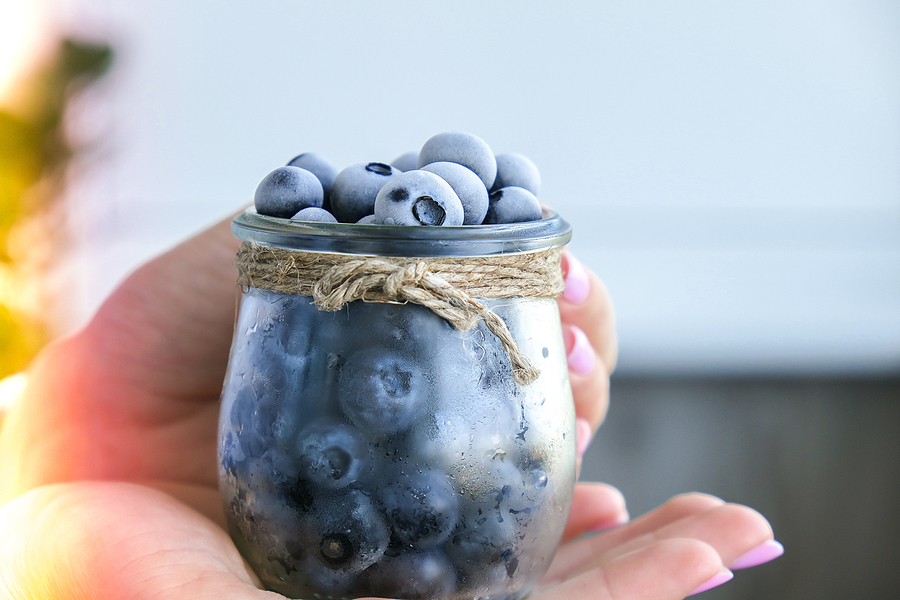Here we are at the beginning of another year. If you’re like so many of the women I know, you’re determined to build healthier habits this year. I know how hard that can be, and I want to assure you that I’m here to help. Let’s start by talking about fried food!
I doubt anyone has the impression that fried foods are good for them – but how bad are they? The answer might be worse than anyone thought! A study published last summer in the American Journal of Clinical Nutrition brought to light a startling association between fried potato consumption and increased risk of death. That’s right — those french fries you love might be decreasing your life span!
The study, which looked at potato consumption of 4,400 people between 45 and 79 over eight years, concluded that simply eating potatoes did not increase mortality risk, but eating them fried twice a week or more doubled the risk.
This finding may have surprised some, but I wasn’t shocked. I’ve advised women for years to opt for roasting, steaming, grilling or broiling rather than frying their foods in unhealthy fats.
I grew up in Australia, where we routinely ate fresh and healthy foods. When we came to the United States, it was such a shock to find that processed foods prevailed, and frying was an accepted – and expected – method of preparing food.
I never did get used to it, and thankfully there are plenty of other options – but if you don’t know any better, you might simply follow the cultural norms. And many Americans still have an insatiable love for anything fried.
Luckily, things are shifting. Research is demonstrating how fried foods are harmful to your health, and people are starting to listen. Let’s take a look at how fried foods can impact health, and then I’ll give you some healthy food preparation tips.
The Adverse Impact Fried Foods Have on Health
Fried foods cook quickly, and they’re often easier to eat on the go, which may explain why they’re so prevalent in our fast-paced society. But what is that convenience doing to your health?
Research has shown that a number of health concerns are linked to the consumption of fried foods, including increased risk of diabetes, heart health, and weight gain.
Diabetes
In addition to research that has shown that preparing food at high temperatures, such as frying, can create compounds that increase inflammation and cardiovascular disease in people with diabetes, research in 2010 showed that high-temperature preparation also increased markers associated with type II diabetes in healthy subjects.
Since then, several other studies have turned up similar findings. A 2014 study published in the American Journal of Clinical Nutrition found a significant association between frequent fried food consumption and incident type II diabetes among subjects who did not have diabetes at baseline.
Heart Health
Your heart health could also suffer from overindulging in fried foods. That same study in 2014 showed a moderate association between frequent fried food consumption and incident coronary artery disease. And a cohort study of over 15,000 participants in the Physician’s Health Study that was published in the Journal of the American Heart Association in 2015 showed a positive association between fried food intake frequency and increased incidence of heart failure.
Obesity
Frying significantly raises the caloric content of food, as compared to healthier preparation methods like baking or steaming. And since many fried foods come with calorie-laden dipping sauces or toppings, you might be eating far more calories than you thought.
Though there’s long been speculation on the link between the consumption of fried foods and obesity, research has been relatively limited. Since the early 2000s, more evidence has shown this connection, including a 2005 study that showed that increased consumption of fried foods away from home in children was associated with higher BMI. Another study in 2007 also showed an association between high consumption of fried foods and general or central obesity.
And if you have a genetic propensity towards obesity, the effects of fried food on body weight can be even higher, according to a 2014 study. That same study showed that this genetic impact was twice as big in those who ate fried foods four or more times per week, compared to individuals who only indulged in fried foods once a week or less. That’s good news, because it suggests that changing your eating habits can have an impact, regardless of your genetics! We now can see from genetics if you are more prone to obesity and what exact food plan you can use to decrease this risk. I do this regularly with my weight loss patients.
Are Fried Foods Addictive?
A recent New York Times article quoted a Harvard professor suggesting that six fries would be an appropriate serving size. This led to plenty of other commentary in major media outlets, including Today.com. The idea of eating just six fries at a time inspired both ridicule and outrage. Why was there such a visceral reaction to this notion?
It could be that much of the nation is actually addicted to these foods! While the idea of addiction to fried foods may seem over the top, there’s at least one study that supports the theory.
High Temp Cooking Creates Acrylamide
Another major concern when it comes to frying food is the production of acrylamide. High temperature cooking can lead to the formation of this substance due to a chemical reaction between sugar and the amino acid asparagine.
Animal studies have indicated that high doses of this substance could pose a risk for several types of cancer. The Joint Food and Agriculture Organization/World Health Organization Expert Committee on Food Additives (JECFA) called acrylamide a human health concern in 2010, and suggested the need for additional long-term studies.
Can’t Live Without Your Fries? Try These Healthier Options
Despite all the information about how unhealthy fried food is, the average American consumes 29 pounds of French fries each year. Think about that for a minute. The average American woman weighs 166.2 pounds, according to the Centers for Disease Control and Prevention. That means they are consuming nearly 1/6 of their body weight in fries each year!
While potatoes aren’t my vegetable of choice with so many other delicious options out there, clearly there are many women who don’t share my opinion. And potatoes do have valuable nutrients, especially if you aren’t soaking them in unhealthy oils. So let’s take a look at some healthier preparations that can leave you just as satisfied.
- Toss potatoes in a tiny bit of olive oil and herbs and roast in the oven. If you want them crispy like french fries, bake on very high heat (450 degrees).
- Add a small baked potato to your plate instead of fries (just beware of toppings – sour cream, cheese, and bacon can spike the calorie count quickly)
- Try an air fryer. I was skeptical, but this gadget is a game changer. It leaves vegetables crispy and delicious without the need for a soak in unhealthy oils.
- Make hash browns on the stove top, using a healthier oil, like coconut or olive oil. Leave the skin on for an added nutritional boost.
- Branch out and try these methods with other vegetables – you might just find a new favorite!
Enjoy Life Longer with Healthy Choices
I understand how hard it can be to change old habits, especially those so firmly a part of our culture. But while that study only showed an association between French fries and mortality, not a causal effect, the information should be enough to give you pause.
Choosing healthy foods is essential to good health, but it’s not enough. For the biggest impact, you also need to decline the unhealthy choices most of the time. And when you recognize how much better you feel, I think you’ll agree it’s worth it. So, step away from the fried food, and give yourself the gift of a long, healthy, satisfying life!
References:
https://www.webmd.com/diet/news/20170622/how-bad-for-you-are-fried-foods
https://www.healthline.com/nutrition/why-fried-foods-are-bad
https://www.nytimes.com/2018/11/29/health/french-fries-nutrition.html?ref=oembed
Related article: The Easiest Way to Feel Better Quickly – Give Nutritional Supplements a Try







